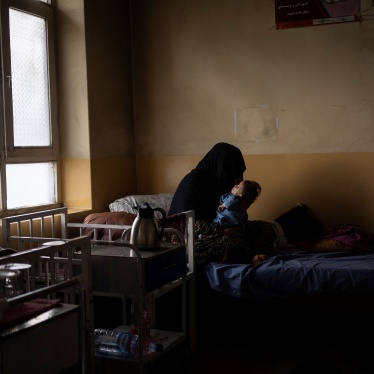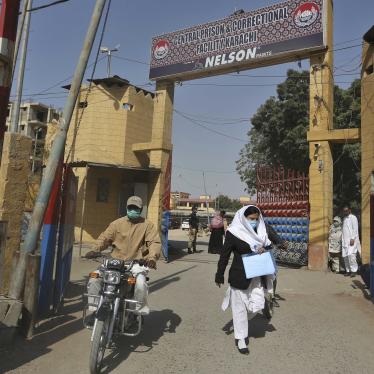(Abuja) - China should focus its efforts on stopping HIV transmission, not on limiting the freedom of movement, expression and speech of people living with HIV, said Human Rights Watch today at a global meeting of AIDS activists gathered in Abuja, Nigeria.
Human Rights Watch was commenting in advance of the November 11-13 board meeting of the Global Fund to Fight AIDS, Tuberculosis and Malaria in Kuming, China. In arranging the meeting in China, the Global Fund board received assurances from the Chinese government that delegates to the meeting representing people living with HIV/AIDS would not be required to disclose their HIV status on immigration landing cards or be subject to a current law excluding HIV-positive individuals from entering China. On September 1, however, without advance notice, the Chinese government made disclosure of HIV status a requirement on all visa applications.
“Discrimination on the basis of HIV status in terms of international travel is both a violation of human rights and an ineffective public health strategy,” said Joe Amon, director of Human Rights Watch’s HIV/AIDS program.
In recent years, the Chinese government has strengthened legislation related to AIDS, including expanding access to antiretroviral drugs, providing legal protection from discrimination, and scaling up methadone therapy for injection drug users (IDUs). However, according to Human Rights Watch, AIDS activists continue to be intimidated and detained by Chinese security forces, and those groups most vulnerable to infection – IDUs, men who have sex with men, and sex workers – are routinely harassed and abused by the police.
Human Rights Watch cited the cancellation this past summer of meetings on HIV/AIDS by civil society groups in Guangdong, Guangzhou and Kaifeng provinces, and the closure of two offices of a Chinese AIDS organization in Henan province. In the past year, Human Rights Watch said that prominent AIDS activists such as 2005 Reebok Human Rights Award winner Li Dan, eighty-year old AIDS activist Dr. Gao Yaojie, and the husband-and-wife HIV/AIDS activist team of Hu Jia and Zeng Jinyan have been detained or put under house arrest. In April, some 350 people infected with HIV/AIDS were blocked by police from protesting over ineffective government-supplied drug treatments in Zhengzhou.
Responding to pressure from representatives of people living with HIV/AIDS on the Global Fund board who threatened to boycott the meeting, the Chinese government has now promised to rescind the new visa requirements and has said that they will work toward overturning their ban on people living with HIV/AIDS from entering the country.
Human Rights Watch called on the Chinese government to take immediate concrete steps toward overturning the ban, and said that the Global Fund should closely scrutinize the Chinese government’s funding proposal to ensure that it included support for civil society organizations and respect for human rights. “Until AIDS activists in China are allowed to speak freely, until people living with HIV are allowed to move freely, and until the government focuses its strategies on effective, rights-based interventions, the Global Fund should find other places to hold its meetings, and support other countries instead,” said Amon.






